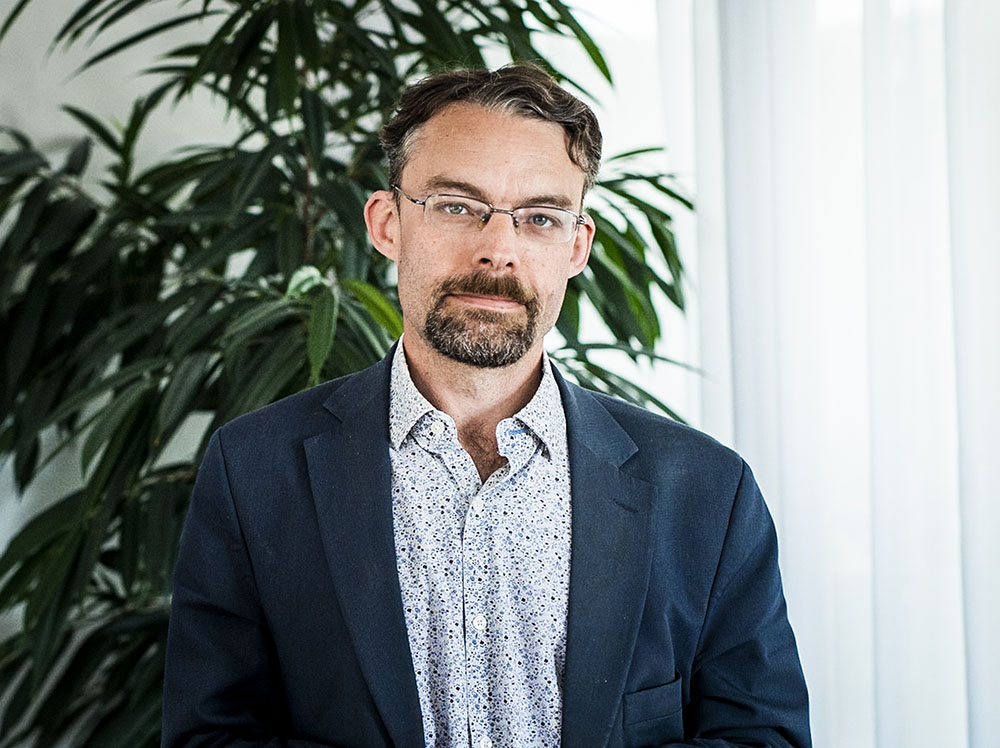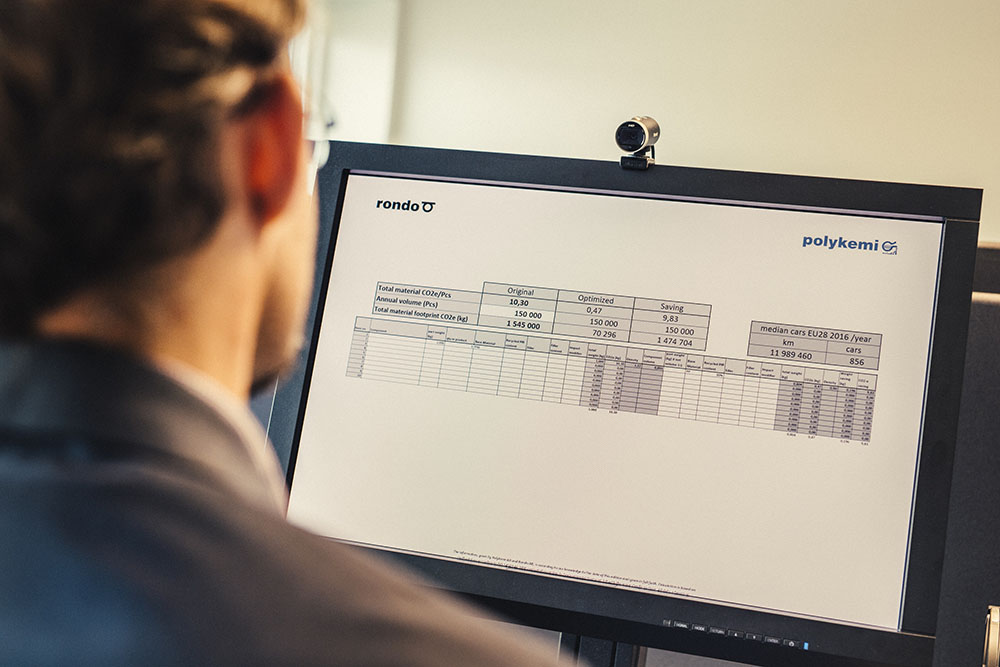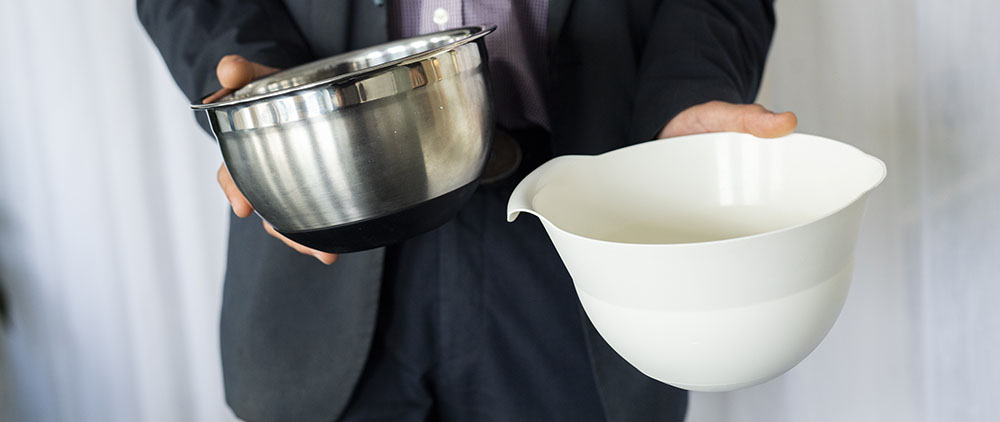Scientific study paves way for new LCA simulation tool from Polykemi Group
Polykemi Group is making a major investment to help companies reduce their carbon footprint. The company is using a scientific study to provide customers information on how their material choices affect the climate.
“We help our customers make smarter material choices to reduce their carbon footprint, while also providing the possibility to make their products lighter and saving both time and costs,” says Sustainability Specialist Henrik Palokangas.
In 2015, the UN adopted a new international treaty on climate change, the Paris Agreement, which strives to limit global warming. To meet the demanding goals, both producers and consumers need to contribute.
“The current discussions is very much focused around energy and fuels, but we also need to consider how different products affect our environment even when they are being produced,” explains Henrik Palokangas, Sustainability Specialist for polymers at plastics manufacturer Polykemi Group, based in Ystad, Sweden.
“We have conducted a scientific study, analyzing the climate impact of all our products and used the results to develop a simulation tool. This gives our customers a unique opportunity to take greater responsibility for the climate, all while reducing their costs.”

Simulation tool calculates materials’ carbon footprint
The scientific study was conducted at Polykemi Group in 2020 and focused on analyzing the climate impacts of the company’s materials. The study demonstrates that the choice of material has a significant part to play in the fight against climate change and assists customers in making smart material choices.
“The simulation tool enables us calculate the cradle-to-gate carbon footprint of all our materials. This enables our customers to assess the environmental footprint of the components they produce,” Mr. Palokangas says.
“It’s easy to select materials out of force of habit, even though there may be significantly better alternatives available that would reduce costs, save time and lower the carbon footprint. We can demonstrate the difference material choices make and help select an optimal alternative in terms of customer requirements, costs and climate performance. “
The scientific study at Polykemi Group was conducted in collaboration with a third party to ensure an objective analysis according to applicable standards. The Life Cycle Assessment (LCA ISO 14040) methodology was used to quantify the environmental aspects of existing or planned products.
Similar studies are currently ongoing for the production unit in Kunshan, China and are planned for the new factories in Chongqing, China and in Charlotte, North Carolina, USA.

The right material for the right purpose – part of the solution
For any finished product on the shelf, between 60 and 80 percent of the carbon footprint originates from the raw materials it is produced from. That is why manufacturers have a responsibility to choose the best materials for their product in terms of function, weight and carbon footprint. In many cases, the carbon footprint can be reduced significantly by selecting plastic instead of, for instance, metal.
For example, the carbon footprint of a stainless-steel salad bowl is 2.4 kg CO2 more than a bowl of the same size made of polypropylene (PP). This means PP is 10 times smarter material-wise because of its lower carbon footprint and its lower weight.

Another example is a curtain rod consisting of a 3×5 cm aluminum profile. Changing from aluminum to ABS will reduce the carbon footprint by 12 kg per product meter.
“This is a choice that makes a huge difference if an entire office complex is furnished with curtain rods. We believe that companies and producers need to take more responsibility and keep consumers informed so they can make the right choices for the good of the climate,” says Mr. Palokangas.
Lower carbon footprint while saving money
According to Polykemi Group’s scientific study, changing from the virgin material PA6 GF15 to PP GF15, which is technically possible in many applications, will reduce the carbon footprint by 6.9 kg of CO2e for every kg of material, i.e. 75 percent. If a recycled PP is an option, the carbon footprint can be reduced by yet another 75 percent.
“Even virgin materials can provide significant climate savings. In addition, there is a lower density, which means that we can produce 15-20% more details on each kilo of material. This gives both increased profitability and enhanced climate performance,” says Mr. Palokangas.
For more than 50 years, Polykemi Group has successfully produced and developed customer adapted plastic compounds, from both virgin plastic and high-quality recycled plastic materials.
“Polykemi Group has extensive experience in both virgin and recycled materials, and now also has the possibilities to simulate the effects of material choices,” says Mr. Palokangas.
“Our solid know-how enables us to develop optimized materials in terms of climate performance, features and costs. When used correctly, these three parameters can be aligned to produce the best results.”
Materialsmart.info
To further show how Polykemi Group can help its customers choose the most optimal material for the right application, the new landing page materialsmart.info is now available. In a simplified version of Polykemi Group’s calculation tool, visitors can simulate different material choices and see what impact they have on the climate. In a Quiz, the visitors can test their the knowledge in material selections. There are also examples of different material-smart projects where large savings have been made.
Contact
For more information, please contact:
Henrik Palokangas
+46 (0) 411 79780
henrik.palokangas@polykemi.se
About Polykemi Group
Polykemi AB is based in Ystad, Sweden, and has since 1968 successfully
developed and manufactured customer adapted plastic compounds.
Polykemi Group consists of the companies Polykemi AB, Rondo Plast AB and
Scanfill AB, all based in Ystad, as well as Polykemi Compounds Kunshan in
China, and Polykemi Inc in the USA. Since its inception, the family-owned
business has helped numerous customers in a wide variety of fields to select
the right materials for their specific products.
Polykemi Group provides customers all over the world with customized
plastic compounds based on both virgin and recycled raw materials of the
highest quality.




